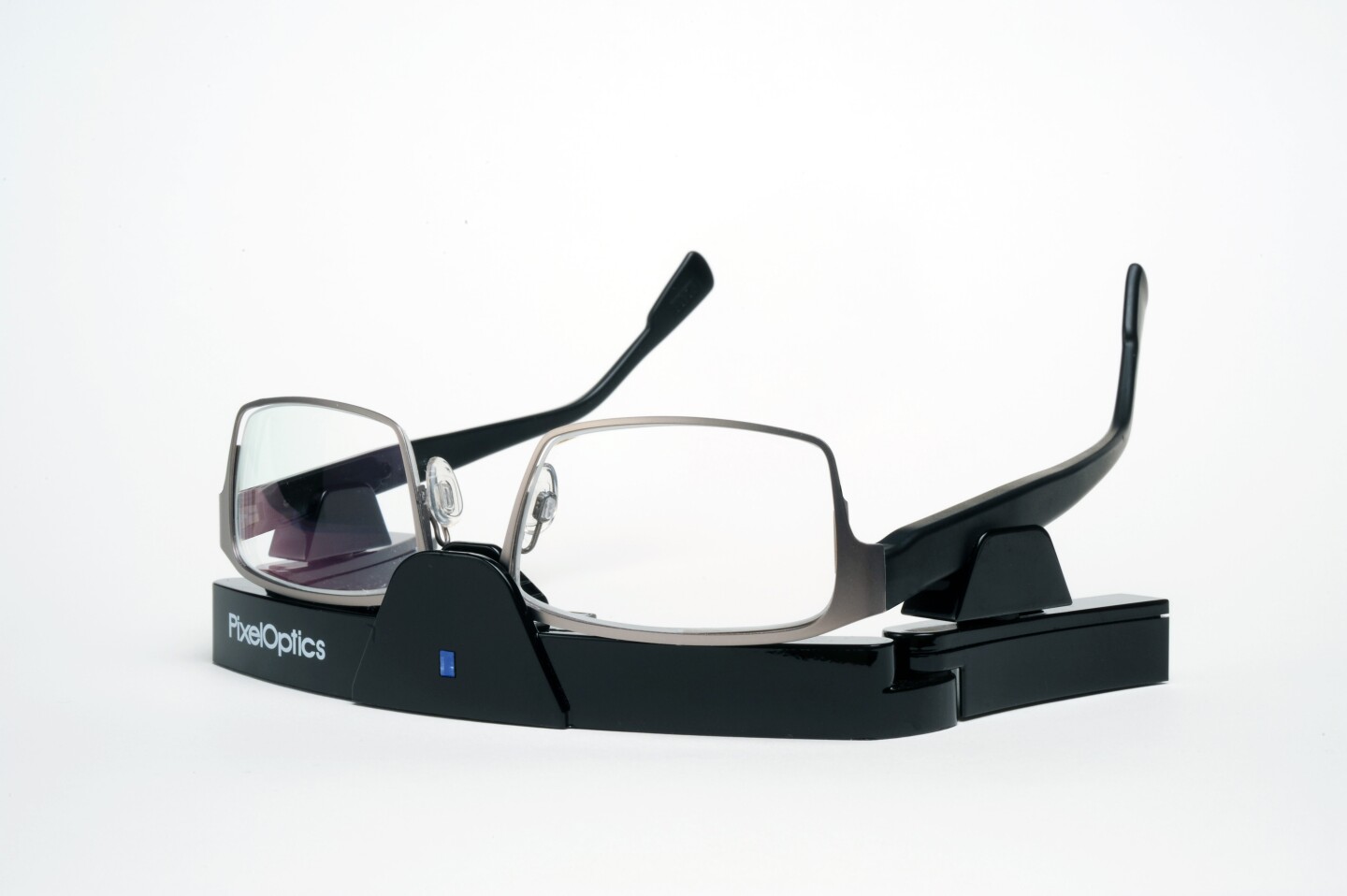We have previously reported on the development of prototype adaptive focus glasses at the University of Arizona (UA) that were able to switch focus electronically. Unlike manually adjustable focus glasses, such as TruFocals, that place a flexible liquid lens between two rigid lenses, the lenses of the prototype glasses consisted of a layer of liquid crystals sandwiched between two pieces of glass. By applying an electric charge, the orientation of the liquid crystals – and therefore the optical path length through the lens – was able to be changed, resulting in glasses that changed focus electronically. This technology is now on its way to consumers with PixelOptics showing its emPower! glasses at CES 2011.
Relying on liquid crystals, the glasses, which PixelOptics will bring to market under the brand name emPower!, are able to switch focus in the blink of an eye and with no moving parts – unless you count the reorientation of the liquid crystals. Being electronically activated also allows for a neat feature. While the wearer is able to manually activate the change of focus by touching the arm of the emPower! glasses, thanks to an accelerometer embedded in the arm, with a swipe they can also set the glasses to change focus automatically when they look down to read.

Being electronic also means batteries. The battery embedded in the glasses can be recharged in around two hours using an inductive charger and is good for two to three days, depending on usage patterns.
Calling them the “world’s first electronic focusing eyewear,” PixelOptics' emPower! glasses are based on the technology originally developed at UA, which licensed three patents to Johnson & Johnson, who then sold the patent licenses to PixelOptics to commercialize the technology. That commercialization is set to happen some time this year when PixelOptics plans to launch its emPower! glasses in around 36 different styles for around US$1,000 to $1,200.


